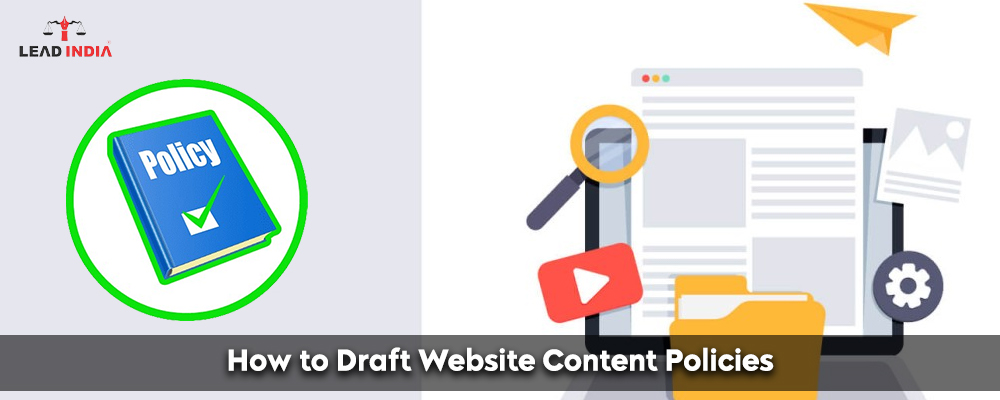Website content policies are a set of standards and rules that govern the development, management, and dissemination of information on a website. These policies provide criteria for content accuracy, organization, security, privacy, and legal compliance. They often contain policies for content development, moderation, approval processes, copyright compliance, privacy protection, and security measures. Website content rules ensure that a website’s material is correct, up-to-date, secure, and in compliance with applicable laws and regulations, hence improving user experience and confidence.
Need A Legal Advice
The internet is not a lawyer and neither are you. Talk to a real lawyer about your legal issue

Key Aspects of Website Content Policies
- Accuracy and Up-to-date Content: Website content should be accurate and up-to-date so that the public may obtain information quickly and easily. However, it is accepted that modifications or updates to the content may occur before they are displayed on the website, and the website proprietors take no legal obligation for any inaccuracies or obsolete information.
- Website material should not contain offensive or discriminatory language, including language based on gender, ethnicity, religion, or disability.
- Personal Information Protection: Users’ personal information must be protected from loss, misuse, unauthorized access, disclosure, alteration, or destruction. Personal information should only be taken when required and with the user’s permission, and it should only be used for the purposes for which it was acquired.
- No sharing of Personally Identifiable Information Personal identifiable information should not be sold or shared with third parties, whether public or private, without the user’s permission.
- Security Measures: To secure users’ personal information, appropriate security measures such as encryption, firewalls, and access controls should be used.
- Disclaimer: The content on websites should not be interpreted as legal advice or utilized for any legal purpose. The website owners are not accountable for any expense, loss, or damage incurred as a result of the use or loss of use of data, or any other consequences of using the website.
- Links to Other Websites: Links to other websites are provided solely for the convenience of the public, and the website proprietors cannot guarantee that such linked pages are always available. Website owners have no control over the availability of linked pages and are not liable for the content of those sites.
- Copyright: Website content may be replicated free of charge after obtaining the necessary permission and recognizing the source. However, permission to reproduce the information does not include any material labeled as third-party copyright. Authorization to reproduce such material must be sought from the departments/copyright holders involved.
- IP Addresses and Browser Information: The website may collect information about the user, including internet protocol (IP) addresses, domain names, browser types, operating systems, date and time of visit, and pages visited. However, unless an attempt to damage the site is detected, the website owners will not seek to link these addresses to the identities of those who visit the site.
- Dispute Resolution: Any issues resulting from these terms and conditions will be resolved exclusively by Indian courts and controlled by Indian laws.
How to Draft Website Content Policies
- Content Creation Guidelines: Set criteria for writing high-quality content, such as utilizing basic and generally used terminology, avoiding acronyms, puns, and academic jargon, and using Title Case for section titles
- Page organization: Prioritise vital information and use headings to increase reading and comprehension.
- Use original or licensed images and videos, ensuring they are high-quality, in focus, and adhere to accessibility guidelines. Limit the use of flashing, flickering, blinking, or animated pictures.
- Copyright Compliance: Ensure that all site material complies with the Indian Copyright Act and its restrictions. Remove any content that doesn’t fulfill these guidelines right away.
- Create a clear privacy policy outlining the collection, use, and transfer of personal information. This policy should respect clients’ rights, provide a good impression, and minimize legal complications and penalties.
- Term of Service: Create a Terms of Service agreement that specifies standards for website usage, including instructions for safeguarding privacy and managing users’ personal information.
- Adherence to Relevant Laws and Regulations: Ensure compliance with all applicable Indian laws and regulations, such as the IT Act and related rules and regulations.
- Consider obtaining public participation and feedback on draft guidelines or policies. This can help uncover strengths and shortcomings and improve the overall efficacy of the policy.
- Regular Review and Updates: Review and update website content policies regularly to ensure they are relevant and effective in addressing emerging challenges and opportunities.
Lead India offers various legal services, such as free legal advice and internet information. We provide a facility in which you can talk to a lawyer and ask legal questions regarding the law here. Lead India’s lawyers can assist you with any legal issues. In India, Lead India provides free legal assistance online. In addition to receiving free legal advice online, Lead India allows users to pose inquiries to experts for free.




